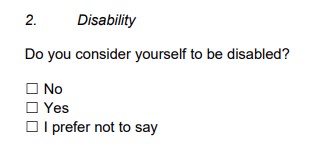Changing Disability Reporting in the UK
Introduction
Disability and diversity reporting in the UK is predominately done through the consolidation of individual diversity reporting forms. The issue is that the section for disability is inadequate, lacks details, and creates misleading results. It needs to be changed.
Current Disability Tracking Question
The current system is overly simplistic. It doesn’t provide granularity on condition. Effective analysis and conclusion about how groups are treated is impossible due to a lack of grouping.
Many people with disabilities try very hard to consider themselves not to be disabled. They want to consider themselves “normal” despite the challenges they face. We expect that to be especially prevalent for invisible conditions such as ADHD. Those people will self-declare as not having a disability despite the serious struggles they are facing. There is also a societal prejudice that ADHD isn’t a disability, which further puts people off declaring.
This should be compared to the other sections of such forms, which do have granularity for precisely the benefits noted as lacking above.
Taken from a diversity monitoring form used for central government appointments.
If the questions on ethnicity, age, sexuality, and others were framed in the same way as the disability question, they would read something like this:
- “Do you consider yourself to be in an ethnic group? Yes / No / Prefer not do say”
- “Do you consider yourself old? Yes / No / Prefer not to say”
- “Do you consider yourself to have a sexual orientation that isn’t heterosexual? Yes / No / Prefer not to say”
To do so would be clearly wrong. Shown purely to act as examples as to why the current disability question is so wrong.
Examples of other current diversity form questions
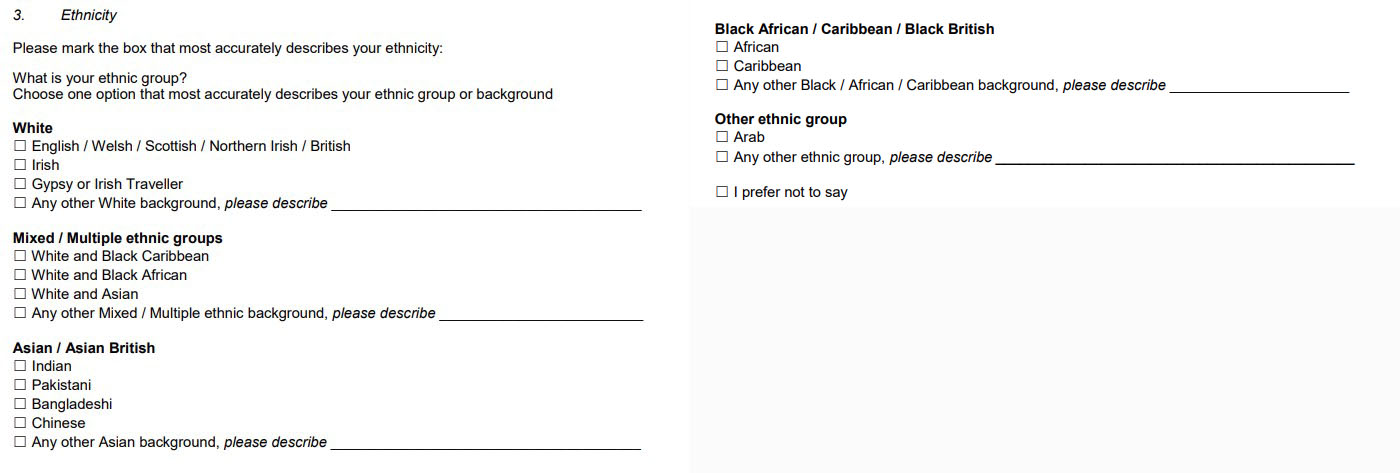
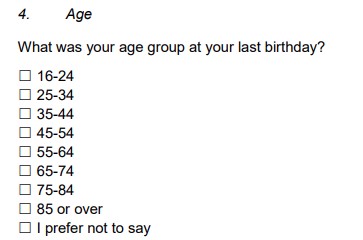
Why granular tracking is important
Knowing about the individual groups, rather than an average for the whole group, means you can know – for instance – if a company is positive for people with physical disabilities but negative for those with mental disorders and disabilities. We need to know how organisations are succeeding and failing to know what to duplicate and what to avoid.
Diversity reflects the breadth of difference. Right now on disability there is no recognition of that breadth.
Below are some examples from a recent civil service diversity report. The captures below highlight the importance of granular tracking. We have it in ALL other sections of diversity tracking we need the same in disability.
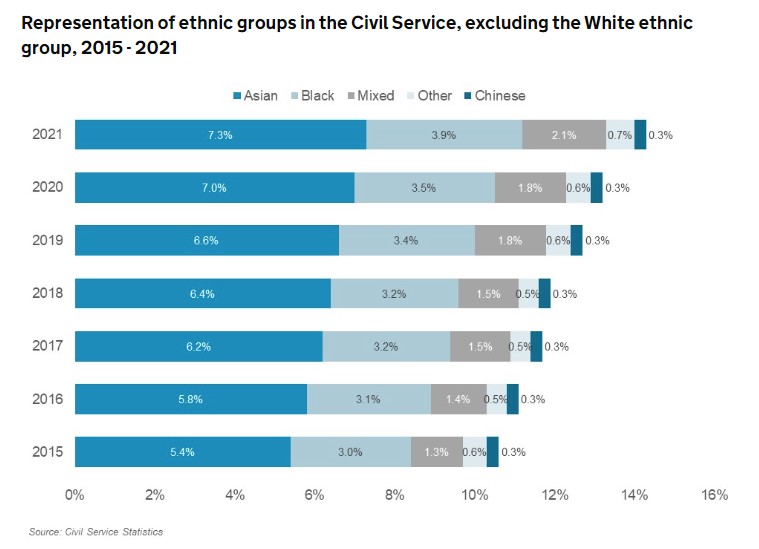
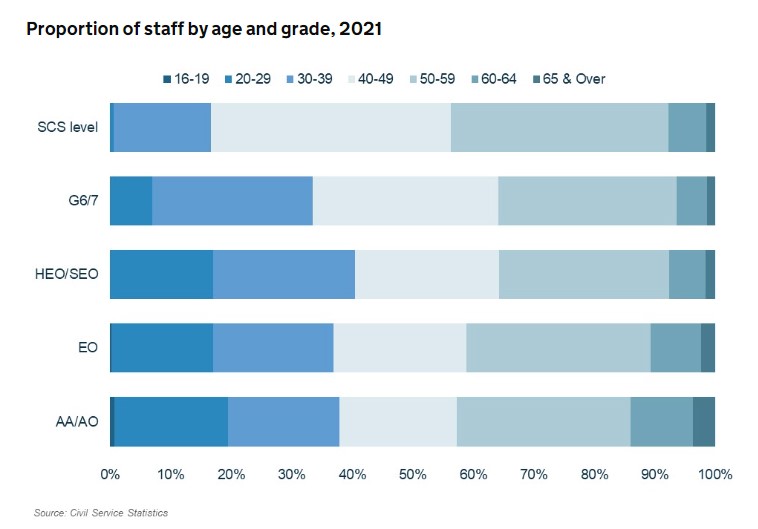
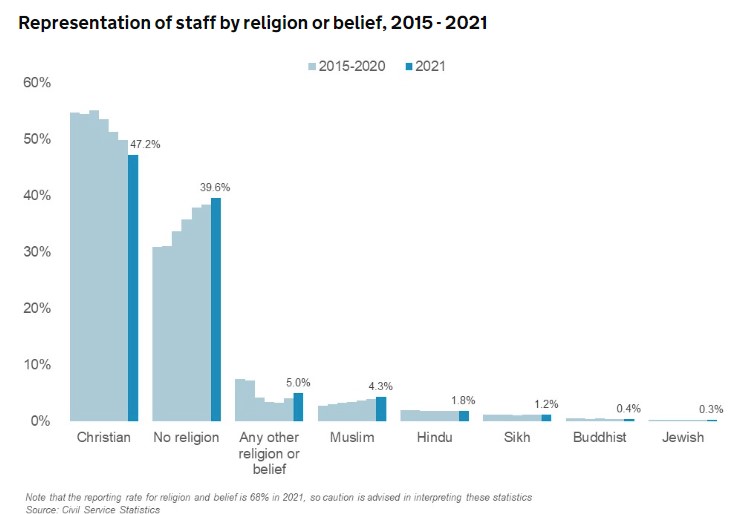
What do we want?
The Cabinet Office to form a committee of disabled groups to meet and put together a recommendation for a new disability question.
Tentative start on a better question
We believe that this question is better developed together. To help people frame their thinking we are providing a potential example question below:
Disability: Do you have a diagnosis of / or strongly consider you should have a diagnosis of any of the following:
Followed by a list of conditions (including ADHD) and the options “Other” and “Prefer not to say”.
How to get involved
We need you to help us make change happen. National change happens at the local level. We’re organising into NHS areas – so you can lobby your area for change. You support our programmes, you have the option to attend monthly “ADHD UK Insider meetings” where we discuss our current programmes and future programmes. You can use those to influence and change our plans. You then get involved in lobbying at multiple levels in your area – your local NHS, your MPS, and your councils to create a successful pincer movement of compounding pressure on decision makers. Councils have particularly strong connections with their local NHS and are often forgotten in lobbying campaigns.
Local Campaigns are led by an individual, or teams of, ADHD UK Ambassadors. You can learn more about the Ambassador program here. If you’re not ready to be an Ambassador but would like to get support locally you can register to be an ADHD UK Change Maker here.

